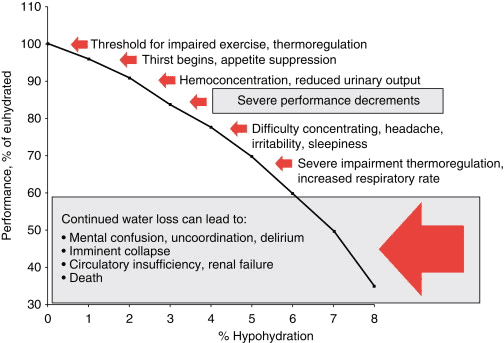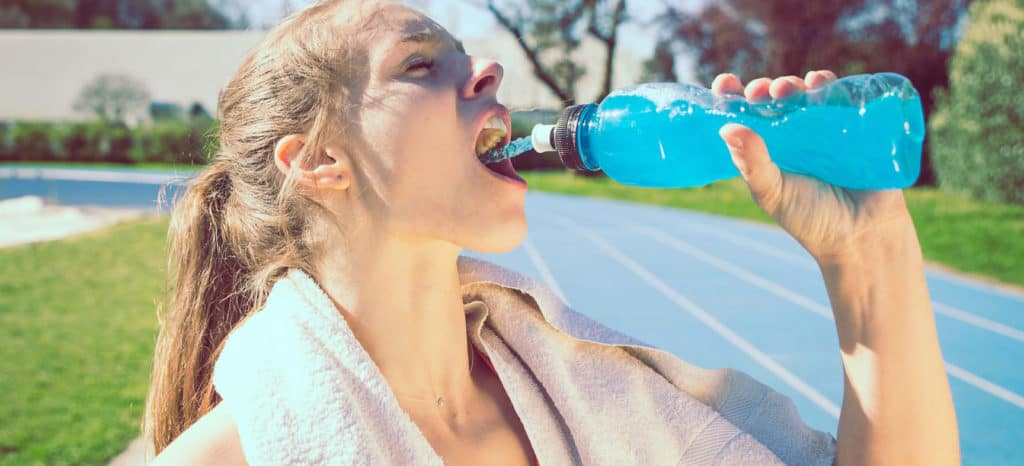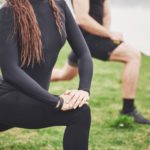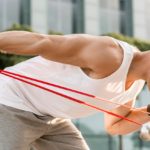
Bianca Koper
(Bachelor of Sport and Recreation, Sport and Exercise Science)
Note — The article was checked and updated December 2022.
As a general rule for us normal athletes, the facts behind science tell us that simpler is better. Water is a better and healthier choice of beverage and hydration for workouts that are less than 1 hour in duration.
Disadvantage of sports drinks is a higher number of calories, but the advantages are that sports drinks also contain electrolytes.
Research suggests that sports drinks should be used in competitive sports and during moderate to strenuous exercises and training.
Water, Hydration and Exercise
The most beneficial way to aid and hydrate our bodies is by drinking water. Naturally, we hydrate our bodies based on our physiological drives through perceived thirst mechanisms.[1]
As our bodies exert more effort, we heat up, triggering thermoregulatory mechanisms such as sweating, heavy breathing and thirst to cool us down.
The ACSM (American College of Sports Medicine) recommends drinking the maximal amount of water that can be tolerated throughout your workout to match the amount lost through sweat.[2]
Keep in mind that if the night before you had a “few”, then you will most likely already be somewhat dehydrated.
RELATED — Alcohol and Performance: Physical and Physiological effects
It is best advised to drink more at the start of the session, then sip regularly throughout. This will most likely match the fluid lost through sweat more easily, and maintain a comfortable feeling to complete your workout.[1]
If you do become dehydrated during exercise, performance will decrease due to rising body temperature and increased heart activity.

If your body is dehydrated, having lost 2% or more of your bodyweight in fluid, you can experience decreased aerobic performance (longer cardiovascular exercise), as well as a decrease in mental and cognitive abilities.[2]
Electrolytes in Sports Drinks and Sweating
Sports drinks are typically made up of carbohydrates (glucose and maltodextrins) and electrolytes (mainly sodium). This blend is specifically made to hydrate your body and delay fatigue through providing extra energy.[3]
Sports drinks are not recommended for all sports or exercises. They are best suited for continuous, moderate/intense exercise lasting for 60 minutes or more. This is due to the amount of muscle glycogen you are using throughout the training period.
If exercising for 60 minutes or more, this means energy stores within the muscle are low. Sports drinks provide the adequate amount of carbohydrates needed to top these up.
When topped up, you can perform for longer and at a higher level than without the additional energy.[1]
How to choose sports drinks?
When looking for a sports drink, it is important to see whether the carbohydrates make up between 6-8% of the drink. This amount will quickly replete muscle glycogen stores, without compromising fluid absorption or gastric emptying.
If carbohydrates are above 8%, you may run the risk of gastrointestinal issues.[3] Amounts lower than 5% will not provide enough energy to create performance benefits.[4]
Sodium is an important element to be replenished as we lose high amounts through sweat. There is a broad range for sodium recommendations during exercise. This is because everyone has individual sweat-rates, therefore it is difficult to pinpoint an optimal amount for the average population.
Recommendations are between the ranges of 0.3–0.7 g·L−1 or 5.1–11.9 mmol·L−1 and seem to help replace sweat loss and stimulate thirst.[3]
If you are not exercising for over 60 minutes of above moderate level, you do not need a sports drink. There will be no physiological benefits for you. At best, you will have a placebo effect. For exercises under 60 minutes, make sure that you have a good pre-workout meal to fuel your session and drink water throughout.
RELATED — Fuel for High Intensity Interval Training
No matter the amount of time spent exercising, always have water! The best way to aid our body is through the simple element it needs to survive. If in doubt, reach for the water bottle.
Remember:
If you haven’t already, please speak to your GP about your concerns to rule out any serious issues that may contribute to the symptoms you are experiencing. Also, ask for an appointment with a Dietitian who can safely guide you through dietary changes.
References
(1) Coyle, E. F. (2004). Fluid and fuel intake during exercise. Journal of sports sciences, 22(1), 39-55. https://www.tandfonline.com/doi/full/10.1080/0264041031000140545?casa_token=WiXra6f-JAMAAAAA%3AGukNRfsBc7gxAJgFMmiKBSghFIFyBiqJaoM7U-AJQECFIQ-C-eeK6HpEskZM_982uPdaAA8dNPRb4w
(2) American College of Sports Medicine position stand. Exercise and fluid replacement. Medicine and science in sports and exercise, 39(2), 377-390. https://journals.lww.com/acsm-msse/Fulltext/2007/02000/Exercise_and_Fluid_Replacement.22.aspx
(3) Scrivin, R., & Black, K. (2018). Sports Drinks Consumed During Exercise, Which Affect Thermoregulation and/or Athletic Performance in the Heat: A Review. Strength & Conditioning Journal, 40(5), 108-119. https://journals.lww.com/nsca-scj/FullText/2018/10000/Sports_Drinks_Consumed_During_Exercise,_Which.8.aspx?casa_token=RWEoJsrZepUAAAAA:Es6b__g-3W-mpWQfAQCvf_CxXh8a6rmxcZ8-jQFwrcglvudQwzINDNOQRuxB9XFsqT92OTVJZ8y9agA0exe8pIeN2IDb-g
(4) Jenkinson, D, M., & Harbert, A, J. (2008). Supplements and Sports. American Family Physician, 78(9), 10839-1046. https://www.aafp.org/afp/2008/1101/p1039.html







Great content!